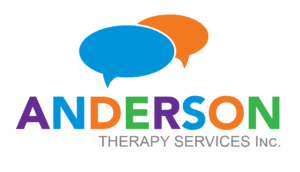Gross Motor Skills in Indigenous Youth
Anderson Therapy Services has been collaborating and working with Indigenous/First Nations, Inuit and Métis communities across Northern Canada, Ontario and Quebec.
Gross motor skills are physical skills that require whole-body movement, which involve the large groups of muscles to perform everyday functions. These are functions such as standing, walking, running, maintaining balance, and sitting upright. Gross motor skills also include eye-hand coordination skills such as ball skills (throwing, catching, kicking).
Gross motor challenges can impact many daily activities. Here are some signs that a child is experiencing gross motor difficulties:
- Late in reaching developmental milestones (i.e. sit, crawl, walk, run and hop)
- Move stiffly; appearing awkward and clumsy
- Avoid physical activity
- Cannot maintain an upright posture when sitting on a mat or at a tabletop
- Unable to perform the same skills as their peers (e.g. catch, kick, hop and jump)
- Unable to follow multiple step instructions to complete a physical task (e.g. obstacle course)
- Unable to plan and correctly sequence events or steps in a process (e.g. step forward before throwing)
- Lose previously mastered skill if they do not keep practicing them
- Unable to transfer a skill (use the same skill in a different setting/way)
Fine Motor Skills in Indigenous Youth
Fine motor skills are physical skills that involve the use of the smaller muscle of the hands. These are skills that require precision and control like using pencils, scissors, tying shoes, and doing up buttons.
Competence with fine motor skills is essential to many of the meaningful tasks in a child’s day. When a child has challenges with hand skills due to injury or delays in skill development, it can have a significant impact on their ability to play, learn, and develop independence skills. The following are some common tasks impacted by poor fine motor skills.
- Academics skills
- Pencil grasp
- Scissors skills (cutting)
- Producing legible, organized written work
- Play
- Construction skills using lego, puzzles, train tracks
- Doll dressing and manipulation
- Self-care
- Dressing – tying shoelaces, doling up sandals, zips, buttons, belts
- Eating – using cutlery, opening lunch boxes and food bags
- Hygiene – cleaning teeth, brushing hair, toileting.
Our Occupational Therapists and Physiotherapists collaborate with you and your child to identify the specific challenges they are having. Our therapists work with healthcare providers, educators, insurance companies, case managers, as well as lawyers to ensure comprehensive client care.
Our services cater to the needs of the child and their family. As a result, therapy sessions range in length, frequency, and duration. Sessions are tailored to your child’s age and interests and will also include a strong parental training component. We pride ourselves on providing engaging services that best meet the needs of the child.
Our therapy services for Indigenous/First Nations, Inuit and Métis communities can be accessed in remote areas using our online videoconferencing technology as well as on-site visits. Our unique service delivery model, in partnership with communities, has helped many First Nations children and youth achieve success across various needs.
Are Difficulties Holding You Back?
Let us know how we can help.
The clinicians at Anderson Therapy Services will try their best to work with your schedule and offer you therapy services at your convenience. To learn more about our services, contact us at (289) 238-8598 or at info@andersontherapy.ca
We provide therapy services at our Dundas and Burlington locations to children, adults and seniors across the Greater Hamilton, Burlington, Oakville, Mississauga, and communities in Northern Ontario and Quebec.

